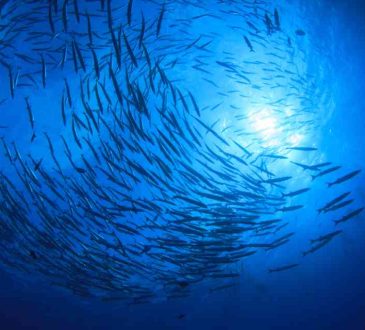U.S. Targets Illicit Financing of Environmental Crimes in the Amazon

The United States has launched a new initiative aimed at countering the illicit financing of environmental crimes in the Amazon, signaling that the issue is becoming a higher international priority. U.S. Treasury Secretary Janet Yellen recently introduced the Amazon Regional Initiative Against Illicit Finance, designed to enhance training, cooperation, and information sharing to assist authorities in pursuing money-laundering investigations tied to transnational criminal organizations. This marks an escalation in efforts to combat what is now recognized as the third most profitable category of organized crime globally.
Environmental crimes rampant across the 6 million km² Amazon basin include land grabbing, illegal logging, illicit mining, and unauthorized agriculture and ranching. As highlighted in the latest U.S. strategy on combating terrorism and other forms of financing, nature crimes involve a complex network of perpetrators, ranging from organized crime groups and drug cartels to corrupt land brokers and legitimate companies within the agriculture and cattle industries.
Nature crimes are deeply intertwined with a broader spectrum of illegal activities affecting the eight countries that share the Amazon rainforest. These include illegal timber extraction, gold mining, poaching, and wildlife trafficking, alongside related crimes such as targeted assassinations, extortion, fraud, and money laundering. The interconnected nature of these crimes, especially when orchestrated by well-established criminal syndicates operating across borders, makes enforcement and prosecution particularly challenging.
The U.S. has intensified its efforts to disrupt the financial networks supporting nature crimes in the Amazon, primarily due to the growing involvement of transnational organized crime. Criminal organizations, including cartels and militias from Brazil, Colombia, Venezuela, and other countries, are increasingly laundering profits from drug trafficking through seemingly legitimate businesses in the Amazon. These so-called “forest mafias” are contributing to “narco-deforestation” through illegal land acquisition, mining, and poaching, particularly in border regions such as the triple frontier areas of Brazil, Bolivia, Colombia, Guyana, Suriname, and Venezuela.
The U.S. initiative builds on the growing resolve of Amazon basin countries and their Western partners to “follow the money” rather than simply increasing police and military presence. Organizations like the UN Office for Drugs and Crime and the Igarape Institute are already working on training law enforcement agencies and financial crimes units in Brazil, Colombia, and Peru to improve evidence collection and operational responses to environmental crimes.
While financial penalties and sanctions can deter some environmental crimes, the effectiveness of these measures depends heavily on robust enforcement—a significant challenge in the Amazon Basin, where security and justice institutions are often weak. Corruption and informality at the local level frequently create strong political and economic disincentives to take action against those involved in nature crimes, with many offenders going unpunished or failing to pay fines when prosecuted.
The success of counter-money laundering efforts related to nature crimes also hinges on smooth transnational cooperation. However, such cooperation is often lacking across Latin America, particularly among Amazon basin countries, where political tensions and mistrust regularly undermine regional initiatives to combat environmental crime.
However, there is growing recognition of the shared threats posed by nature crime across the region, particularly in Brazil, Colombia, Ecuador, and Peru. Following the 2019 Leticia Pact, leaders from all Amazon countries signed the 2023 Belem Declaration, which identifies environmental crimes as threats to climate priorities, governance, and sustainable development. The U.S. announcement to focus on money laundering and transnational criminal organizations is a timely response to this shifting regional tone.
At the regional level, efforts are underway to strengthen the Amazon Treaty Cooperation Organization (ACTO), although progress has been slow. Brazil also launched the International Police Center (CCPI-Amazon) in early 2024 to enhance cooperation, including on financial crimes. In parallel, ad hoc coalitions supported by the EU, Interpol, and Europol are emerging to expand police and prosecutorial collaboration on financial crimes and money laundering.
However, U.S.-led sanctions and technical support are only part of the solution to fighting nature crime. While targeting drug cartels, large companies, and corrupt officials is crucial, smaller criminal groups, firms, and landowners involved in illegal deforestation are unlikely to be deterred without comprehensive strategies. These should include strengthening the rule of law and offering viable economic alternatives to reduce dependency on extractive activities.
Law enforcement agencies across the Amazon basin face multiple obstacles, including a lack of technical expertise in anti-money laundering and illicit financial flows. Although some experience exists in disrupting money laundering from drug trafficking, most police and criminal justice institutions have limited knowledge in tackling financial crimes related specifically to natural resources.
Another significant challenge is the inconsistent patchwork of money laundering laws across the region. With varying definitions of offenses, harmonizing legislation and policies across jurisdictions is essential. Without alignment, cross-border police efforts are severely hampered, a problem that extends beyond Amazon basin countries to the U.S. and EU as well.
Political and economic factors remain the most significant barriers to disrupting illegal financial flows linked to nature crimes. Elected officials and civil servants may benefit from activities such as illegal logging, mining, and poaching and, therefore, have little incentive to cooperate with law enforcement. Additionally, many local businesses and residents depend on illegal and informal practices related to these crimes, complicating efforts to prosecute offenders and enforce the law.
Have you read?
What Business Leaders Can Learn from Top Sporting Event Athletes.
African countries with the highest number of internally displaced persons (IDPs)
Revealed: Countries With the Largest Forex Reserves.
Eric Spofford Is Turning People’s Lives Around as a Business Athlete.
Countries buying the most Black Hawk helicopters.
Bring the best of the CEOWORLD magazine's global journalism to audiences in the United States and around the world. - Add CEOWORLD magazine to your Google News feed.
Follow CEOWORLD magazine headlines on: Google News, LinkedIn, Twitter, and Facebook.
Copyright 2025 The CEOWORLD magazine. All rights reserved. This material (and any extract from it) must not be copied, redistributed or placed on any website, without CEOWORLD magazine' prior written consent. For media queries, please contact: info@ceoworld.biz








